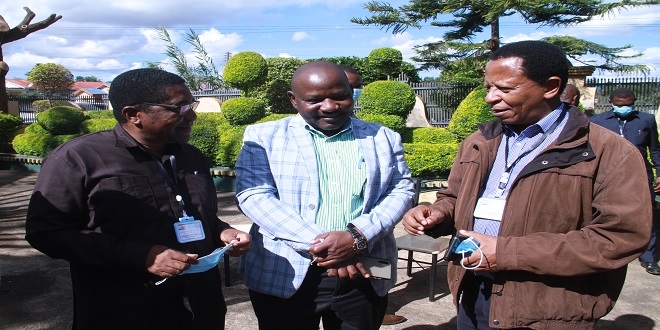A Collaborative Effort to Boost Agricultural Productivity and Prosperity, Under the umbrella of the Guiding Acid Soil Management Investment in Africa (GAIA) initiative
In a significant stride toward transforming agricultural practices and enhancing crop yields, the Southern Agricultural Growth Corridor of Tanzania (SAGCOT) has launched an ambitious project to combat soil acidity in the Songwe Region. This groundbreaking initiative, Guiding Acid Soil Management Investment in Africa (GAIA), is an international project funded by the Bill and Melinda Gates Foundation (BMGF) through CIMMYT Harare. GAIA aims to revolutionize farming techniques in Tanzania, Rwanda, Kenya, and Ethiopia, promising significant advancements in sustainable agriculture.
The project’s formal inauguration occurred yesterday, with Agriculture Minister Professor Adolf Mkenda leading the ceremony. Highlighting the importance of the endeavour, Minister Mkenda emphasized the need for Songwe farmers to maximize the opportunities provided by the project to increase their harvests per acre significantly. Currently, maize growers in Songwe yield a mere seven bags, whereas proper fertilizer usage and soil acidity elimination could raise their productivity to a remarkable 30 bags.
Soil acidity has long been a hidden challenge for Tanzanian farmers, hampering their agricultural outputs despite their efforts to utilize fertilizers. The anti-soil acidity project in Songwe aims to address this issue head-on, urging farmers to approach the initiative with utmost seriousness. Additionally, Minister Mkenda proposed the establishment of a lime factory in the region, ensuring easy access to lime, a crucial component in combating soil acidity.
Professor Mkenda thanked AGRA, CIMMYT, TARI, and TFRA for taking the transformative project forward. Geoffrey Kirenga, Chief Executive Officer of Sagcot, echoed the sentiments of appreciation towards the five sponsors and emphasized the importance of collective efforts in enabling Tanzania to produce sufficient lime to combat soil acidity effectively.
Frederic Baudron, the representative from CIMMYT, affirmed their commitment to cooperate with Tanzania and pledged to promptly disseminate essential information on soil health and crop husbandry. This knowledge exchange will play a crucial role in equipping farmers with the necessary insights to enhance productivity and ensure sustainable agricultural practices.
The launch of the anti-soil acidity project in Songwe marks a turning point in the region’s agricultural landscape. With the support of the BMGF and the collaboration between various institutions, this endeavor is set to empower farmers, increase their yields, and pave the way for greater prosperity. By addressing the pervasive issue of soil acidity and providing farmers with the tools and knowledge they need, the project aims to unlock the true potential of Songwe’s agricultural sector.
